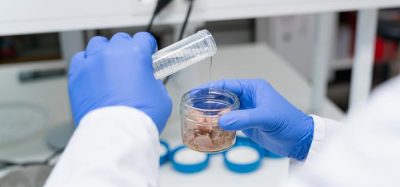Researchers assess online raw milk cheese products
- Like
- Digg
- Del
- Tumblr
- VKontakte
- Buffer
- Love This
- Odnoklassniki
- Meneame
- Blogger
- Amazon
- Yahoo Mail
- Gmail
- AOL
- Newsvine
- HackerNews
- Evernote
- MySpace
- Mail.ru
- Viadeo
- Line
- Comments
- Yummly
- SMS
- Viber
- Telegram
- Subscribe
- Skype
- Facebook Messenger
- Kakao
- LiveJournal
- Yammer
- Edgar
- Fintel
- Mix
- Instapaper
- Copy Link
Posted: 24 November 2015 | Victoria White | No comments yet
A group of researchers from the Institute of Milk Hygiene at the Vetmeduni Vienna have analysed raw milk cheese ordered online to find out if the products adhere to hygienic rules…


A group of researchers from the Institute of Milk Hygiene at the Vetmeduni Vienna have analysed raw milk cheese ordered online to find out if the products adhere to hygienic rules.


Dagmar Schoder decided to investigate raw milk cheeses for the study as they are made from unpasteurised milk, which puts them at a higher risk of microbiological contamination.
“We chose raw milk cheese because it is a high-risk product. As raw milk is unpasteurised, it can be easily contaminated with harmful bacteria. Even a small amount of bacteria, for which raw milk cheese offers ideal growing conditions, can reach critical proportions after a longer ripening, storage and transport time. The product is then no longer edible and may even make consumers ill. For this reason, special care must be taken during production, storage and transport,” said Schoder.
Schoder and her colleagues ordered 108 different raw milk cheeses from 21 online retailers in seven European countries (France, Italy, the Netherlands, Germany, Switzerland, Spain and Belgium).
Listeria monocytogenes and E. Coli identified in some raw milk cheese samples
The researchers found Listeria monocytogenes in two cheese products. The faecal bacteria Escherichia coli was found in 32 products. Its presence indicates poor conditions of hygiene during production. Salmonella were not found in any of the cheese samples.
“Some of the producers apparently have shortcomings in terms of hygiene,” explained Schoder. “Furthermore, when making online purchases, I recommend consumers to check if a product is adequately packaged and cooled when it arrives.”
The shipping period of the online products was between one and five days. “Cheese must be cooled,” Schoder stresses. But this was not the case with over 60% of the raw milk products purchased. “If raw milk cheese is not cooled, bacteria will grow more quickly. A longer transport journey and improper packaging increase the risk for consumers.”
Only 19 of the cheeses fulfilled the EU labelling requirements (Directive 2000/13/EC and Regulation 853/2004). Of the cheeses purchased, 37 were not labelled as “raw milk cheese” and 43 labels had no “use by date”. Information on storage requirements was missing in more than half of the cheeses.









